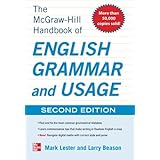sympatry (Also sympatries) : Related Words Words similar in meaning to sympatry
- sympatry«
- sympatric«
- sympatric specie«
- biology«
- species«
- differential fusion«
- population«
- specie«
- biological science«
- interbreeding«
- speciation«
- palaeobiology«
- geographical«
- sympatric speciation«
- cryobiology«
- paleobiology«
- syntopy«
- bionomics«
- secondary contact«
- morphology«
- magpie«
- exobiology«
- specie discrimination«
- cytology«
- cuckoo«
- occurrence«
- hybrid offspring«
- biogeography«
- strong mating discrimination«
- astrobiology«
- partial sympatry«
- sociobiology«
- magpie host«
- radiobiology«
- divergence«
- molecular biology«
- prezygotic isolation«
- embryology«
- magpie egg«
- neurobiology«
- reproductive character displacement«
- genetic science«
- postzygotic isolation«
- physiology«
- sympatric population«
- phytology«
- north pacific«
- genetics«
- allopatric population«
- zoology«
- fungal colony«
- space biology«
- cuckoo egg«
- ecology«
- character displacement«
- microbiology«
- allopatry«
- biologist«
- natural selection«
- zoological science«
- leafcutter ant«
- botany«
- ant colony«
- life scientist«
- geographic isolation«
- forestry«
- environmental science«
- hybridization«
- distinct specie«
- habitat«
- ability«
- whale populations–«
- syntopic specie«
- sympatric speciation–«
- such speciation«
- researchers–«
- reproductive isolation–«
- reproductive divide«
- reproductive character displacement hypothesis«
- population sympatric«
- peripatric specie«
- maladaptive hybridization«
- magpie mother«
- magpie hatchling«
- m. evotis«
- local fungal garden«
- hoya de gaudix«
- genetic–«
- genetic interbreeding«
- gene flow–«
- gametic incompatibility«
- fungal interbreeding«
- fungal gardens«
- foreign fungi«
- fewer cuckoo egg«
- egg impossible–«
- cuckoo exhibit brood parasitism«
- consistent vertical lineage«
- brood parasitism«
- broader term sympatry«
- biologist karen mccoy«
- bat specie myotis auriculus«
- ancient sympatry«
- mating«
- north atlantic«
- sympatric range«
- recent sympatry«
- michael jd white«
- mechanisms–«
- genus magicicada«
- fungus colony«
- definitive barrier«
- cuckoo hatchling«
- bidirectional migration«
- active isolation«
- total reproductive isolation«
- several distinct type«
- parapatric population«
- habitat overlap«
- competitive stress«
- allopatric specie pair«
- viable zygote«
- sexual adaptation«
- reproductive character«
- reinforcement«
- population pair«
- complete speciation«
- acromyrmex ant«
- contact«
- killer whale population«
- genus phlox«
- crow«
- whale«
- joint occurrence«
- egg type«
- marbled newt«
- fungus mutualism«
- stickleback fish«
- close specie«
- evolutionary biologist ernst mayr«
- reproductive barrier«
- ant population«
- reproduction«
- splitting process«
- geographic constraint«
- probability«
- allopatric specie«
- breeding pond«
- exerts«
- reproductive individual«
- mating signal«
- genus acromyrmex«
- basidiomycete fungi«
- common range«
- genetic purity«
- cape crow«
- horizontal transmission«
- distinct range«
- keen ability«
- individual population«
- heritable trait«
- parasitic organism«
- assortative mating«
- viable form«
- hybrid zone«
- populations«
- recent genetic analysis«
- range expansion«
- behavioral difference«
- viable offspring«
- orcinus orca«
- multiple host«
- allopatric speciation«
- geographical factor«
- individual«
- individual colony«
- antarctic ocean«
- clamator glandarius«
- mechanism«
- internal parasite«
- reproductive isolation«
- evolutionary pressure«
- deme«
- moller«
- equal level«
- mutualistic relationship«
- genetic divergence«
- dominant mode«
- coevolution«
- type«
- location«
- relative frequency«
- habitat preference«
- main theory«
- potential mate«
- sister specie«
- selective pressure«
- researcher«
- coyne«
- soler«
- selection«
- cicada«
- mtdna«
- parasitism«
- cohabitation«
- contrast«
- killer whale«
- experimental evidence«
- strong force«
- drosophila«
- alternative explanation«
- orca«
- newt«
- host«
- genotype«
- orr«
- similar specie«
- starling«
- result«
- southern spain«
- nature«
- ecologist«
- resident«
- current research«
- fertilization«
- range«
- flowering plant«
- lack«
- zoologist«
- main type«
- southern europe«
- process«
- life cycle«
- recent research«
- fungus«
- parasite«
- invader«
- credibility«
- taxon«
- western france«
- mountain range«
- ant«
- fit«
- trait«
- validity«
- fusion«
- fungi«
- isolation«
- nest«
- hypothesis«
- array«
- mate«
- discrimination«
- implication«
- organism«
- area«
- essence«
- contributor«
- transmission«
- identification«
- atlantic«
- mode«
- duration«
- locality«
- great«
- observation«
- adaptation«
- others«
- experiment«
- characteristic«
- biologic«
- biological«
- hemodynamics«
- cytogenetics«
- phycology«
- paleobotany«
- paleoecology«
- malacology«
- pharmacogenetics«
- teratology«
- neurophysiology«
- biota«
- mammalogy«
- silviculture«
- ichthyology«
- mycology«
- ethology«
- proteomics«
- taxonomist«
- neurobiologist«
- kinesiology«
- bacteriologist«
- molecular genetics«
- molecular biologist«
- herpetology«
- ornithology«
- physiologist«
- cryonics«
- general anatomy«
- anatomy«
- vivisectionist«
- taxonomer«
- systematist«
- sociobiologist«
- radiobiologist«
- pteridology«
- protozoology«
- pomology«
- phytologist«
- paleozoology«
- palaeozoology«
- palaeoecology«
- palaeobotany«
- oology«
- myology«
- cytologist«
- bugology«
- algology«
- genomics«
- neuroscience«
- geneticist«
- undercut«
- entomology«
- botanist«
- bioscience«
- naturalist«
- microbiologist«
- botanical«
- biotech«
- biotechnology«
- forest«
- animal scientist«
- plant scientist«
- life science«
- natural scientist«
- lumper«
- neuroanatomy«
- conceptus«
- osteology«
- bioremediation«
- primatology«
- biometry«
- conchology«
- fertilized egg«
- ethologist«
- macroscopic anatomy«
- taxonomy«
- malacologist«
- mammalogist«
- dietetics«
- herpetologist«
- systematics«
- physiological anatomy«
- propagator«
- comparative anatomy«
- mycologist«
- topology«
- ichthyologist«
- anatomist«
- embryo«
- anatomical«
- splitter«
- woodland«
- functional genomics«
- functional anatomy«
- developmental anatomy«
- divider«
- topographic anatomy«
- cognitive neuroscience«
- recombinant DNA technology«
- clinical anatomy«
- genetic engineering«
- biometrics«
- regional anatomy«
- gross anatomy«
- applied anatomy«
- ornithologist«
- systematism«
- protozoologist«
- pomologist«
- paleornithology«
- paleomammalogy«
- paleodendrology«
- palaeornithology«
- palaeodendrology«
- morphophysiology«
- lepidoptery«
- lepidopterology«
- gene-splicing«
- euthenics«
- dysgenics«
- dermatoglyphics«
- deVries«
- cytogeneticist«
- craniology«
- cistron«
- cacogenics«
- bugologist«
- bug-hunter«
- structural genomics«
- bacteriology«
- vivisection«
- neuroscientist«
- gene«
- afforestation«
- entomologist«
- biostatistics«
- brain science«
- timberland«
- eugenics«
- factor«
- virologist«
- woods«
- bird watcher«
- shell collecting«
- biomedical science«
- timber«
- medical science«
- wood«
- Thomas Huxley«
- Thomas Hunt Morgan«
- Thomas Henry Huxley«
- Sir John Cowdery Kendrew«
- Rachel Louise Carson«
- Rachel Carson«
- Pasteur«
- Morgan«
- Max Delbruck«
- Louis Pasteur«
- Kendrew«
- Huxley«
- Haeckel«
- George Wells Beadle«
- George Beadle«
- Ernst Heinrich Haeckel«
- Delbruck«
- Carson«
- Carrel«
- Beadle«
- Alexis Carrel«
- Zinsser«
- Yersin«
- Wilmut«
- William Henry Hudson«
- William Curtis«
- Willem Einthoven«
- Weismann«
- Weber«
- Watson«
- Wassermann«
- Walter Rudolf Hess«
- Walter Hess«
- Wallace«
- W. H. Hudson«
- Ventner«
- Trofim Denisovich Lysenko«
- Tradescant«
- Tonegawa Susumu«
- Tinbergen«
- Theodor Schwann«
- Szilard«
- Swammerdam«
- Steller«
- Spallanzani«
- Sir Joseph Banks«
- Sir John Carew Eccles«
- Sir Frederick Grant Banting«
- Sir David Bruce«
- Sir Charles Scott Sherrington«
- Sir Alexander Fleming«
- Sir Alan Hodgkin«
- Sherrington«
- Schwann«
- Schleiden«
- Sabin«
- Roy Chapman Andrews«
- Robert Koch«
- Robert Brown«
- Reiter«
- Purkinje«
- Pincus«
- Pavlov«
- Paul Ehrlich«
- Okenfuss«
- Oken«
- Noguchi«
- Nikolaas Tinbergen«
- Muller«
- Muir«
- Metchnikov«
- Metchnikoff«
- Mendel«
- Matthias Schleiden«
- Martin Cline«
- Macleod«
- M. J. Schleiden«
- Lysenko«
- Luigi Galvani«
- Louis Harold Gray«
Louis Agassiz, Lorenz Okenfuss, Lorenz Oken, Lorenz, Loeb, Linnaeus, Leo Szilard, Lazzaro Spallanzani, Lamarck, Konrad von Gesner, Konrad Zacharias Lorenz, Konrad Lorenz, Koch, Kinsey, Karl von Frisch, Karl Linne, Jussieu, John Tradescant, John Scott Haldane, John Muir, John Macleod, John James Rickard Macleod, John Haldane, John Eccles, John Burdon Sanderson Haldane, Johannes Peter Muller, Johannes Evangelista Purkinje, Johann Mendel, Jean Louis Rodolphe Agassiz, Jean Baptiste de Lamarck, Jane Goodall, Jan Swammerdam, Jan Evangelista Purkinje, James Watson, James Dewey Watson, Jacques Loeb, J. Craig Ventner, J. B. S. Haldane, Ivan Petrovich Pavlov, Ivan Pavlov, Ilya Ilich Metchnikov, Ian Wilmut, Humboldt, Hugo deVries, Hugo De Vries, Hudson Hoagland, Hudson, Hodgkin, Hoagland, Hideyo Noguchi, Hess, Hermann von Helmholtz, Hermann Ludwig Ferdinand von Helmholtz, Hermann Joseph Muller, Helmholtz, Hans Zinsser, Hans Conrad Julius Reiter, Hans C. J. Gram, Haldane, Gregory Pincus, Gregory Goodwin Pincus, Gregor Mendel, Gray, Gram, Goodall, Gesner, Georges Leopold Chretien Frederic Dagobert Cuvier, Georges Cuvier, George Washington Carver, Georg Wilhelm Steller, Galvani, Frisch, Fleming, Ferdinand Julius Cohn, F. G. Banting, Ernst Heinrich Weber, Elie Metchnikov, Elie Metchnikoff, Einthoven, Ehrlich, Edgar Douglas Adrian, Eccles, E. H. Weber, De Vries, David Bruce, Darwin, Cuvier, Curtis, Craig Ventner, Cohn, Cline, Claude Bernard, Chevalier de Lamarck, Charles Robert Darwin, Charles Herbert Best, Charles Darwin, Carver, Carolus Linnaeus, Carl von Linne, C. H. Best, Bruce, Brown, Best, Bernard, Baron Hermann Ludwig Ferdinand von Helmholtz, Baron Georges Cuvier, Baron Friedrich Heinrich Alexander von Humboldt, Baron Alexander von Humboldt, Baron Adrian, Banting, Banks, August von Wassermann, August Friedrich Leopold Weismann, Asa Gray, Antoine Laurent de Jussieu, Andrews, Andrew Huxley, Andrew Fielding Huxley, Alfred Russel Wallace, Alfred Charles Kinsey, Alexandre Yersin, Alexandre Emile Jean Yersin, Alexander Fleming, Albert Sabin, Albert Bruce Sabin, Alan Lloyd Hodgkin, Alan Hodgkin, Agassiz, Adrian,



